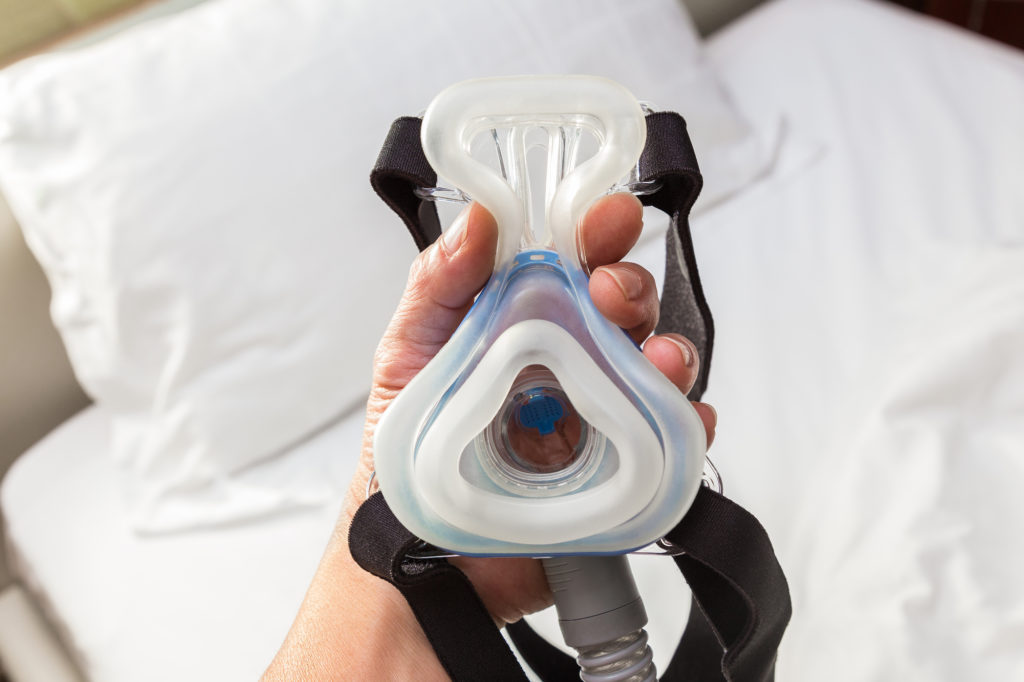What’s The Best Way to Floss
We all know we should floss, but it can be tough. Part of this is because flossing can feel like an extra task in an already busy day, but it...

Are you newly diagnosed with obstructive sleep apnea? This can be a scary and confusing time, and you may have lots of questions. Is sleep apnea a big deal? What are the risks? What is a CPAP, and is it my only option?
When it comes to your own personal treatment plan, having a real conversation with a medical professional is the only way to know the answer to some of these questions. But here is a brief overview of what obstructive sleep apnea is and whether CPAP is the only treatment (hint: it’s not).
Sleep apnea is a condition where you stop breathing temporarily during sleep. In the case of obstructive sleep apnea, this occurs due to a disrupted airway and can lead to both short-term and long-term health and quality-of-life consequences. In the short term, sleep interruption can mean tiredness, difficulty waking, irritability, headaches, dry mouth, and loud snoring (which can also affect your partner). Long-term, sleep apnea correlates with diabetes, cardiovascular disease (including high blood pressure, heart attack, and stroke), and depression.
Because obstructive sleep apnea is linked to an obstructed airway (as opposed to central sleep apnea, which is neurological), opening up the airway can often alleviate sleep apnea. There are actually several ways to accomplish this, although it is important to talk to a medical professional to see which option, or combination, is right for you.
A CPAP machine is what most people think of first when it comes to sleep apnea treatment. CPAP is an acronym for “continuous positive airway pressure,” meaning the machine helps keep your airway open with air pressure. Different attachments for your nose, mouth, or both are available, depending on the severity of your case.
CPAP machines are usually recommended for moderate to severe cases. However, if you experience significant disruptions to your life from even a mild case, you may want to consider a CPAP. Conversely, if you find that wearing a CPAP is uncomfortable and disrupts your sleep, you may want to consider an alternative.
An oral appliance for sleep apnea works by repositioning the jaw in order to keep the airway unobstructed. CPAP machines can have a higher efficacy rate, particularly for more severe cases. But oral appliances can also be effective for many patients. This includes those suffering from all levels of sleep apnea, particularly if they cannot tolerate a CPAP.
In fact, compliance rates with oral appliances are significantly higher than with CPAP, as many patients prefer them. This alone may be a large factor in the decision of which treatment option is right for you.
Obesity can often, but not always, contribute to sleep apnea. It is important to remember that not all people who are clinically obese also have sleep apnea. Nor do all people who have sleep apnea suffer from obesity. But for many people, weight gain can bring about sleep apnea.
With diet, exercise, and significant weight loss, some patients can reverse their sleep apnea. However, because sleep apnea can be detrimental to health and well-being, pairing weight loss efforts with more immediately effective treatment is often recommended. If you can get to a healthy weight where you no longer experience sleep apnea, your provider may give you the okay to cease other treatments.
Choosing the right medical treatment for sleep apnea, or any medical condition, can be a highly personal decision. Short-term results of sleep apnea are not usually life-threatening. Your provider is likely to be open to you trying different treatments until you find the right one for you. The important thing is getting your sleep apnea under control to avoid serious long-term health effects.
Are you wondering whether you are a candidate for sleep apnea treatment with an oral appliance? Schedule an appointment with our office right away to find out.